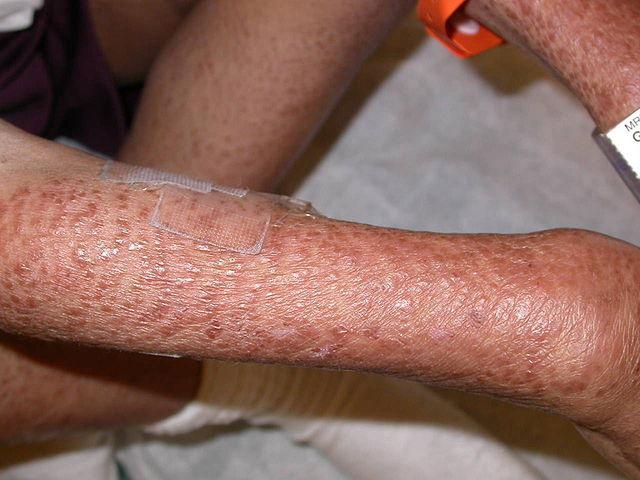Muckle-Wells syndrome (MWS) is a rare, inherited genetic condition that primarily affects the immune system. It is classified as a type of autoinflammatory disorder, causing recurrent episodes of fever, skin rashes, and joint pain. Understanding Muckle-Wells syndrome is crucial for individuals affected by the condition, as it can significantly impact their quality of life and may lead to complications if left untreated.

This article will provide a detailed overview of Muckle-Wells syndrome, covering its causes, symptoms, diagnostic methods, available treatment options, and the management of the disease. By exploring this condition thoroughly, we aim to offer valuable insights to both patients and healthcare professionals.
What is Muckle-Wells Syndrome?
Muckle-Wells syndrome is an autosomal dominant genetic disorder caused by mutations in the NLRP3 gene. This gene provides instructions for producing a protein that plays a key role in regulating the body’s inflammatory response. The mutation in the NLRP3 gene leads to excessive and uncontrolled inflammation, which is a hallmark of the syndrome.
MWS is part of a group of diseases known as cryopyrin-associated periodic syndromes (CAPS), which includes conditions like Familial Mediterranean Fever (FMF) and Neonatal Onset Multisystem Inflammatory Disease (NOMID). Muckle-Wells syndrome is characterized by recurrent episodes of fever, hives, and joint pain, which can sometimes lead to more severe complications like hearing loss and amyloidosis.
Causes and Genetic Basis of Muckle-Wells Syndrome
Muckle-Wells syndrome is caused by mutations in the NLRP3 gene, which encodes the cryopyrin protein. This protein helps regulate the body’s immune system, particularly the inflammasome, which plays a critical role in the inflammatory response.
In individuals with MWS, mutations in the NLRP3 gene result in an overactive inflammasome, leading to excessive production of inflammatory molecules like interleukin-1β (IL-1β). This uncontrolled inflammation triggers the symptoms of MWS, including fever, rashes, and joint pain. The genetic nature of Muckle-Wells syndrome means that it is inherited in an autosomal dominant manner. This means that a person only needs one copy of the mutated gene to develop the condition, and it can be passed on to their children.
Symptoms of Muckle-Wells Syndrome
Muckle-Wells syndrome is characterized by episodic symptoms that can vary in severity. The symptoms typically begin in childhood or early adulthood, and individuals may experience flare-ups of the condition at irregular intervals. These episodes are often triggered by environmental factors, infections, or other stressors.
1. Recurrent Fever
One of the most common symptoms of Muckle-Wells syndrome is recurrent fever. These fever episodes can last from a few days to a week and may be accompanied by chills and malaise. The fever episodes often occur spontaneously, without any clear trigger.
2. Chronic Urticaria (Hives)
Chronic urticaria, or hives, is another hallmark of Muckle-Wells syndrome. The hives are typically red, itchy welts that appear on the skin and can vary in size. They may appear suddenly during flare-ups and are usually transient, disappearing within a few hours.
3. Joint Pain and Swelling
Many individuals with Muckle-Wells syndrome experience joint pain and swelling, particularly in the knees, wrists, and ankles. This is a result of the ongoing inflammation in the body, which affects the joints and surrounding tissues. The joint symptoms may be intermittent but can become chronic in some cases.
4. Hearing Loss
As Muckle-Wells syndrome progresses, some individuals may develop sensorineural hearing loss. This type of hearing loss is caused by damage to the inner ear or the auditory nerve and can lead to partial or complete deafness if left untreated.
5. Amyloidosis
Amyloidosis is a rare but serious complication of Muckle-Wells syndrome. It occurs when abnormal proteins called amyloids build up in organs like the kidneys, heart, and liver. Over time, this buildup can impair organ function and lead to life-threatening conditions.
Diagnosing Muckle-Wells Syndrome
Diagnosing Muckle-Wells syndrome can be challenging due to its rarity and the overlap of symptoms with other autoinflammatory disorders. However, several diagnostic approaches can help identify MWS:
1. Clinical Evaluation
The first step in diagnosing Muckle-Wells syndrome is a thorough clinical evaluation, including a detailed medical history and physical examination. Healthcare providers will look for signs of recurrent fever, hives, joint pain, and hearing loss, which are indicative of MWS.
2. Genetic Testing
Since Muckle-Wells syndrome is caused by a genetic mutation in the NLRP3 gene, genetic testing is essential for confirming the diagnosis. A blood sample can be analyzed to check for mutations in the NLRP3 gene, which would confirm the presence of the syndrome.
3. Blood Tests and Inflammatory Markers
Blood tests can help assess the level of inflammation in the body. Elevated levels of C-reactive protein (CRP) and erythrocyte sedimentation rate (ESR) are common in individuals with Muckle-Wells syndrome, as these markers are indicative of ongoing inflammation.
4. Hearing Tests
If hearing loss is suspected, audiological evaluations are conducted to assess the degree of sensorineural hearing loss. Early detection of hearing problems is essential to prevent further damage.
Treatment of Muckle-Wells Syndrome
While there is no cure for Muckle-Wells syndrome, treatment options are available to manage symptoms and reduce inflammation. The primary goal of treatment is to control flare-ups, alleviate pain, and prevent complications such as amyloidosis.
1. IL-1 Inhibitors
The most effective treatment for Muckle-Wells syndrome involves medications that target the overactive immune response. IL-1 inhibitors such as anakinra and canakinumab are commonly used to block the inflammatory effects of IL-1β, a key molecule involved in the disease process. These medications help reduce the frequency and severity of fever, joint pain, and other symptoms.
2. Nonsteroidal Anti-Inflammatory Drugs (NSAIDs)
NSAIDs, such as ibuprofen, can be used to manage pain and inflammation during flare-ups. However, these medications only provide symptomatic relief and do not address the underlying immune dysfunction.
3. Corticosteroids
In some cases, corticosteroids may be prescribed to reduce inflammation and control flare-ups. However, long-term use of corticosteroids is associated with significant side effects and is generally avoided unless absolutely necessary.
4. Supportive Care for Hearing Loss
For individuals with sensorineural hearing loss, hearing aids or cochlear implants may be recommended to improve hearing. Early intervention is crucial to minimize the impact of hearing loss on quality of life.
5. Regular Monitoring for Amyloidosis
Due to the risk of amyloidosis, individuals with Muckle-Wells syndrome should undergo regular monitoring of their organs, particularly the kidneys and heart. Early detection of amyloid buildup can help prevent irreversible organ damage.
Managing Muckle-Wells Syndrome
Living with Muckle-Wells syndrome requires careful management to control symptoms and prevent flare-ups. Individuals with the condition should work closely with their healthcare team to develop a personalized treatment plan. Lifestyle modifications, such as avoiding known triggers and maintaining a healthy lifestyle, can also help reduce the frequency of flare-ups.
1. Diet and Lifestyle Modifications
While no specific diet has been proven to cure Muckle-Wells syndrome, maintaining a healthy diet rich in anti-inflammatory foods (such as omega-3 fatty acids) may help manage symptoms. Regular physical activity and stress management are also important for overall health.
2. Genetic Counseling
Since Muckle-Wells syndrome is inherited, genetic counseling is recommended for individuals with a family history of the condition. This can help affected individuals understand the risks of passing the condition on to their children and make informed decisions about family planning.

